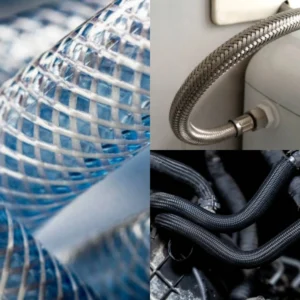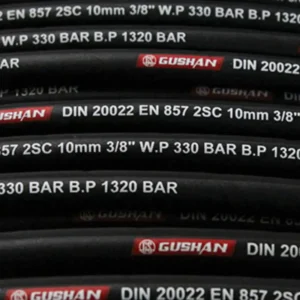We’ve all been there—excited to start a big cleaning project, only to find the hose is kinking, leaking, or just not long enough. The truth is, a pressure washer hose isn’t a one-size-fits-all component. The ideal hose for a homeowner cleaning their deck is completely different from what a professional needs for a commercial job. To make the best choice, we need to consider several key factors that influence a hose’s durability, performance, and compatibility. Let’s break down each element to ensure you get the right fit for your machine and your tasks.
Determine the Type of Pressure Washer You Have
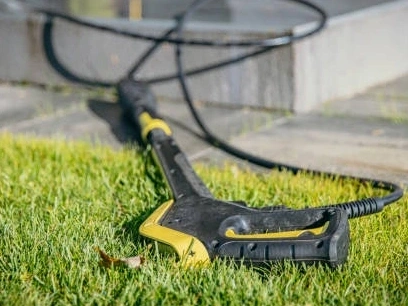
Before you can effectively choose a pressure washer hose, you must know the specs of your machine. The pressure and water flow of your pressure washer dictate the minimum requirements for your hose. Using a hose that isn’t rated for your machine’s pressure can lead to dangerous failures, while a hose that restricts water flow can hurt your cleaning efficiency. We always recommend checking the owner’s manual to find the PSI (pounds per square inch) and GPM (gallons per minute) ratings. These two numbers are the most important pieces of information you need to select a safe and effective hose.
Understanding Your Pressure Washer’s Specifications
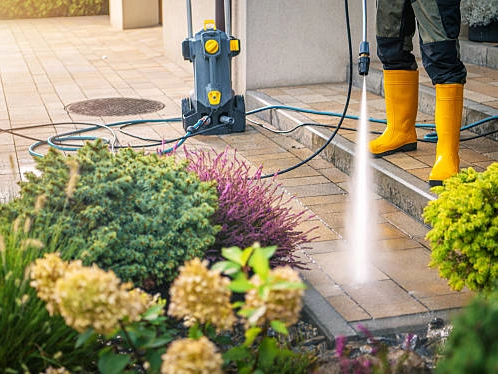
Before you can effectively choose a pressure washer hose, you must know the specs of your machine. The pressure and water flow of your pressure washer dictate the minimum requirements for your hose. Using a hose that isn’t rated for your machine’s pressure can lead to dangerous failures, while a hose that restricts water flow can hurt your cleaning efficiency.
We always recommend checking the owner’s manual to find the PSI (pounds per square inch) and GPM (gallons per minute) ratings. These two numbers are the most important pieces of information you need to select a safe and effective hose.
Pressure Washer Hose Material
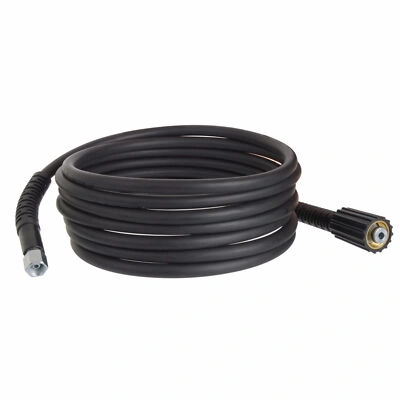
The material of a pressure washer hose is a huge factor in its performance, durability, and cost. Different materials have different strengths and weaknesses, so we need to match the material to the job. We’ve used hoses of all types and have a clear sense of what works best for different applications. Here’s a quick look at the most common options and why you might choose one over the other.
| Hose Material | Pros | Cons | Best For |
| PVC / Plastic | Lightweight, very affordable, easy to store | Prone to kinking, stiff in cold weather, less durable | Light-duty residential use; budget-conscious buyers |
| Rubber | Extremely durable, flexible, great abrasion resistance | Heavy, can be difficult to manage, may leave scuff marks | Heavy-duty and professional use; frequent, demanding jobs |
| Polyurethane | Lighter than rubber, more durable than PVC, kink-resistant, non-marking | More expensive than PVC, less abrasion-resistant than rubber | All-around use; homeowners who need more durability; commercial use on delicate surfaces |
| Hybrid | Combines flexibility of rubber with the light weight of PVC | Can be more expensive than single-material hoses | A versatile, high-performance option for many applications |
Consider the Length of the Pressure Washer Hose
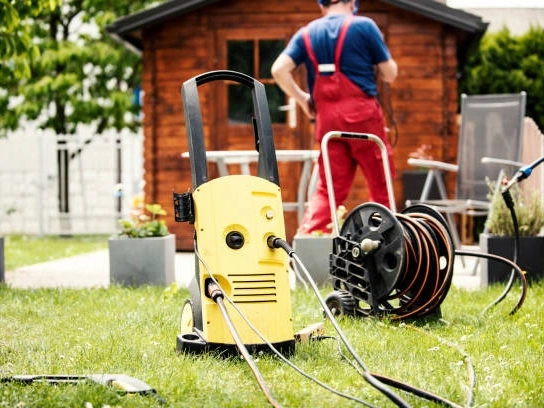
When we choose a pressure washer hose, length is a key variable we can tailor to our specific needs. A longer hose offers more reach and freedom of movement, which is great for cleaning large areas without having to constantly move the pressure washer. However, longer hoses can also cause a slight pressure drop and are more cumbersome to coil and store.
For most homeowners, a 25-foot to 50-foot hose is an ideal compromise. For professionals, a 75-foot or 100-foot hose may be necessary to minimize the need to move a heavy machine around a large job site.
Check the Diameter of the Pressure Washer Hose
The diameter of the hose (typically 1/4”, 5/16”, or 3/8”) impacts the water flow. A wider diameter allows for a higher GPM, which is crucial for larger, more powerful machines. For most residential pressure washers (2.5 GPM or less), a 1/4″ hose is sufficient. However, if you have a more powerful machine (3.0 GPM and up), you’ll want to move to a 5/16” or 3/8” hose to avoid restricting the water flow. This ensures your pressure washer operates at its peak efficiency.
Look for a Pressure Washer Hose with the Right Fittings
The connections on your hose are what link it to the pump and the spray wand. We need to make sure the fittings are compatible with our machine to avoid leaks and ensure a secure connection. The most common type is a quick-connect fitting, which makes it incredibly easy to attach and detach the hose. There are also threaded connections. We always recommend checking the type and size of the connections on your pressure washer before you buy a new hose.
Another important consideration is the material of the fittings. We’ve found that brass is a common and reliable choice for most residential applications. However, for commercial or heavy-duty use, stainless steel fittings are a better investment. They are more durable, highly resistant to corrosion, and can handle higher pressures without failing.
Choose Pressure Washer Hose with a Warranty
When we make a significant purchase, especially for a tool we rely on, a warranty offers peace of mind. A manufacturer that stands behind its product with a solid warranty demonstrates confidence in its quality and durability. While a warranty may not be the deciding factor, it’s a strong indicator of a high-quality hose. We always recommend looking for hoses with a warranty of at least one year. This protects you against premature failure due to manufacturing defects, which can save you from having to buy a replacement hose sooner than expected.
Conclusion
The best way to choose a pressure washer hose is to balance your budget and cleaning needs. By considering all the factors we’ve discussed—material, length, pressure rating, and accessories—you can make the best choice for you and get on with your cleaning work with confidence.


